Blog • Perfecting your Craft, Book Marketing
Posted on Jun 27, 2018
How to Title a Book: What Do Good Book Titles Have In Common?
About the author
Reedsy's editorial team is a diverse group of industry experts devoted to helping authors write and publish beautiful books.
More about the Reedsy Editorial Team →Dario Villirilli
Editor-in-Chief of the Reedsy blog, Dario is a graduate of Mälardalen University. As a freelance writer, he has written for many esteemed outlets aimed at writers. A traveler at heart, he can be found roaming the world and working from his laptop.
View profile →So you’ve (finally) finished your book, only to find one last question standing between you and the bestsellers list: how to title your book. Maybe you don’t like the working title you’ve been using these past few months. Perhaps you’ve come up with a title you love — but everyone else says that it might hurt your market potential.
So what makes for a truly good book title? Luckily, there’s a short, simple, 4-point checklist that will help you choose a book title that’s guaranteed to catch a reader’s roving eye. Only joking! Although that would be nice, wouldn’t it? While there’s no sure-fire method for formulating the perfect title, this post will give you ideas for devising a title that enhances your book and gives it the best chance of success.
We recommend downloading this actual free book title checklist to follow along while you read this post. Otherwise, let's get started!
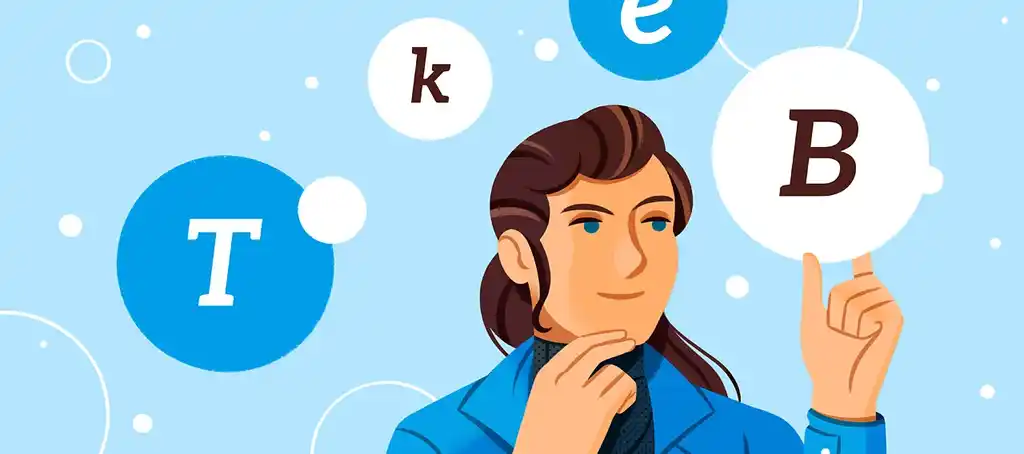
FREE RESOURCE
Book Title Checklist
Create a title that stands out — and sells.
Why do book titles matter?
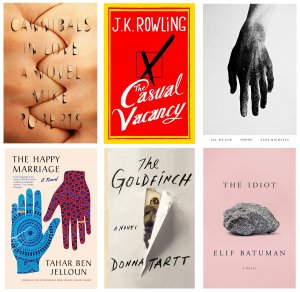
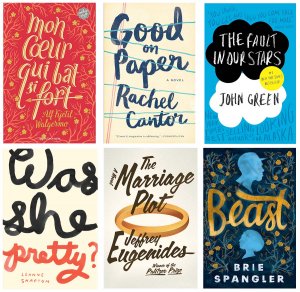
Without a book title, your book can't exist. Having a title in place before you start writing can help inform or reinforce your themes and what your novel is actually about. To learn more about the planning process, go here for a complete guide and a free book outline template. Secondly, if you don’t already think of the title of your book as a marketing decision, start now. Your book title might be the single most important marketing choice you make. The title plays a key part in creating a first impression — possibly even more so than the design of your book cover. Think about the last time you browsed Amazon or looked at a bestsellers list. Chances are that what caught your eye was the:
- The book cover design, and
- The title.
Now, a good title won’t magically make a book sell, but a bad one will hinder sales at best and, at worst, alienate its core readership. With that in mind, let’s start making some good decisions!
What do good titles for books have in common?
Like we said earlier, there are no hard-and-fast rules for crafting the perfect title. There are, however, some patterns and similarities between good titles that may help you choose your own.
They intrigue and entice the reader
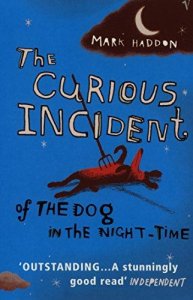 A title might ask a question — it could encourage the reader to wonder how, why, who, or what the title refers to. Keep in mind, however, that the line between mysterious and downright confusing is sometimes a very fine one.
A title might ask a question — it could encourage the reader to wonder how, why, who, or what the title refers to. Keep in mind, however, that the line between mysterious and downright confusing is sometimes a very fine one.
Think along the lines of: The Curious Incident of the Dog in the Night-Time by Mark Haddon and Do Androids Dream of Electric Sheep? by Philip K. Dick.
They match the book to its genre
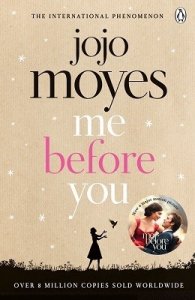 You don’t have to be painfully obvious about it, but a title like Titan Returning doesn’t sound like an emotionally fraught romance novel. Whilst intriguing titles are what we’re aiming for, you also want it to tip readers off to your genre — especially because people are likely to find new books through ‘Customers Also Shopped For’ sections. They’ll gravitate towards things that remind them of books they have read and loved, so take inspiration from your favorites of the genre.
You don’t have to be painfully obvious about it, but a title like Titan Returning doesn’t sound like an emotionally fraught romance novel. Whilst intriguing titles are what we’re aiming for, you also want it to tip readers off to your genre — especially because people are likely to find new books through ‘Customers Also Shopped For’ sections. They’ll gravitate towards things that remind them of books they have read and loved, so take inspiration from your favorites of the genre.
Think along the lines of: Me Before You by Jojo Moyes and The Murder of Roger Ackroyd by Agatha Christie.
They are (normally) of a sensible length
The aim is for your readers to have some idea what’s going on, without revealing too much or having a paragraph on the front cover. Long titles can work — just think of The Guernsey Literary and Potato Peel Society by Mary Ann Shaffer — so long as people can recall just enough of it to find it on Amazon (or by asking a bookseller in a store).
 Also, it’s important to think of what your cover will look like as a thumbnail. If the type is too small, no-one will be able to pick out the title. If you look at the design for Jonas Jonasson’s book, the words “The Hundred-Year-Old Man” are isolated and presented in slightly larger type than the rest of the title. The designer knew that most people would likely refer to it as only that — just as most readers will know that “The Curious Incident” refers to The Curious Incident of the Dog in the Night-Time by Mark Haddon. Just know that super-long titles are the exception, not the rule.
Also, it’s important to think of what your cover will look like as a thumbnail. If the type is too small, no-one will be able to pick out the title. If you look at the design for Jonas Jonasson’s book, the words “The Hundred-Year-Old Man” are isolated and presented in slightly larger type than the rest of the title. The designer knew that most people would likely refer to it as only that — just as most readers will know that “The Curious Incident” refers to The Curious Incident of the Dog in the Night-Time by Mark Haddon. Just know that super-long titles are the exception, not the rule.
Think along the lines of: The Hundred-Year-Old Man Who Climbed Out of the Window and Disappeared by Jonas Jonasson and Lolita by Vladimir Nabokov.
They help readers discover the book
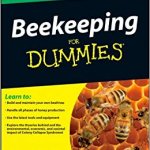 Even if you’re not planning to exclusively sell through Amazon, chances are that many readers will discover your book through it — making it one of your main source of revenue. Whilst you want a unique title, so it’s not the millionth novel titled “The Book,” you don’t want to make it so special that you miss out on potential keywords that people search for in your genre. In essence, if your book is about tax accounting, then words related to that better feature in the title.
Even if you’re not planning to exclusively sell through Amazon, chances are that many readers will discover your book through it — making it one of your main source of revenue. Whilst you want a unique title, so it’s not the millionth novel titled “The Book,” you don’t want to make it so special that you miss out on potential keywords that people search for in your genre. In essence, if your book is about tax accounting, then words related to that better feature in the title.
Think along the lines of: Beekeeping for Dummies or Why We Sleep: The New Science of Sleep and Dreams by Matthew Walker.
Things to watch out for
Whilst there aren't things you need to do, and so there aren't things you need to not do when choosing a book title, there are certain things that are best given a wide berth.
Overly complex language
Even books about a specialist subject can have a simple, accessible title, like Thinking, Fast and Slow by Daniel Kahneman. Remember that a title is there to intrigue and entice — not repel and frighten off readers by making them think that your book is going to read like a thesaurus.
One-word titles
If you title your non-fiction book “Bottles,” it’s going to be very difficult to rank as the first search result: you’d be competing against people selling hot water bottles, books on the ecological impact of plastic water bottles, and research on bluebottle flies. Avoid confusion by striking the balance between cryptic titles and ones that attempt to summarize the entire book on the front cover. (The exception is flash fiction, where the brevity of one-word titles matches the brevity of the story itself.)
Potential confusion
Don’t get caught out — be careful not to choose a title that might be offensive in certain regions, or that might have an unintended double meaning. Equally, if your book title relies on a reference that is extremely local, or perhaps a little niche, it might be an idea to reconsider and aim for something more universal.
How to title a book: a couple of methods
There really are no bad ideas when you’re coming up with potential titles — just ones that are better than others. Try to write down anything that comes to mind.
Start free writing
Write absolutely anything that comes into your head: words, phrases, names, places, adjectives — the works. You’ll be surprised how much workable content comes out from such a strange exercise.
Look for formulas or set phrases
Obviously, we’re not advocating plagiarism, but try playing around with formats like:
“The _____ of _______”
or
“______ and the _____”
These will work for certain genres, though they are by no means the only patterns you can play around with. Have you noticed how many blockbuster thrillers these days feature the word “woman” or “ girl” somewhere in the title?
Use characters as inspiration
If your central character has a quirky name or a title (like Doctor or Detective) you can definitely incorporate this into your book title. Just look at Jane Eyre, Percy Jackson, or Harry Potter, for instance — working with one or more or your characters’ names is a surefire way to get some title ideas down. Equally, you can add a little detail, like Thomas Hardy’s Jude the Obscure, to add a little color to a name and make it title-worthy.
Do the same for setting
Is your book set somewhere particularly interesting or significant? Even if your title isn’t just where the action takes place (like Middlemarch by George Eliot), it’s something to have in the back of your mind. You can include other details, like The Wizard of Oz by L. Frank Baum or Picnic at Hanging Rock by Joan Lindsay, to give your readers a sense of action and character, as well as setting (which tend to be linked).
Is there a particular phrase or idea you can work with?
Think Harper Lee’s To Kill A Mockingbird here — this is a central symbol and significant piece of dialogue in the novel. It’s enigmatic (what does it even mean? Is it a warning? An instruction?) and makes us really sit up when these words appear in the text itself. Try and think of your inspiration for writing your book or sum up your central theme in a few words, and see if these inspire anything.
Find inspiration from other works
You might be surprised at how many books refer to other works in their titles (The Fault in Our Stars by John Green comes from Shakespeare’s Julius Caesar, and Steinbeck’s Of Mice and Men takes its inspiration from a Robert Burns poem). Going this route allows authors to use an already beautiful and poetic turn of phrase that alludes to a theme in their own book. From Ernest Hemingway’s For Whom the Bell Tolls to Philip Pullman’s His Dark Materials, so many books have used this technique that might also work for you.
To subtitle, or not to subtitle?
In non-fiction publishing, there’s a trend of evocative or abstract titles, followed by a subtitle that communicates the content (and is packed with delicious keywords that the Amazon search engine can’t resist). This is also another way to get around long titles — and to add a little panache to an otherwise dry subject matter. In the United States, it’s also quite common to have “A Novel” as a subtitle (if, you know, it’s a novel). In the United Kingdom, this practice is much rarer.
Start with a generated title!
If you’ve gone through all of the above and are still wringing out your brain trying to come up with the golden formula — fear not! There are other ways to get the cogs whirring and inspiration brewing, such as title generators.
What are the rules for choosing a book title?
There are no actual rules when it comes to naming your book. Editors and agents might have their own rules of thumb. But hey, it’s your book and you can call it what you want to. That being said, each retailer has its own particular rules and standards for titles — rules you’ll need to adhere to if you intend to publish there. Let’s take a look at Amazon’s guidelines. Not permitted in Amazon book titles:
- Unauthorized reference to other titles or authors – so don’t think you can get away with titling your book “Stephen King’s Dreams.”
- Unauthorized reference to a trademarked term.
- Reference to sales rank (e.g., "bestselling") – even if it is a bestselling book.
- Reference to advertisements or promotions (e.g., "free") – a lot of people search for ‘Free books’, which is why Amazon doesn’t want you to call it that.
- The title field should contain only the actual title of your book as it appears on your book cover.
- Foul, vulgar, or obscene language – as Jeff Wheeland, author of There's More to Life than a Shitty Cubicle found out, you can't advertise your book on Amazon if you swear in the title.
Whilst Amazon doesn’t always effectively police their own rules, if you want to build a reputation as an author, you’ll naturally want to avoid underhand practices.
Test your book title
Congrats! If you’ve got this far, it’s time to test your title. Thought you were done? Oh, no. Even if you are 110% certain that you’ve hit upon the next Harry Potter title-equivalent, a little market research won’t hurt and could be the crucial difference between an okay and a bestselling title.
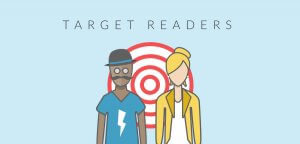
Here are some ways you can check if your title floats in the real world and in the heads of your audience who, after all, are the most important people in this process. It’s vital to remember that book titles are ultimately for readers.
Start local
Begin with your family and friends, but remember that if you just poll inside your immediate circle for feedback, chances are it will be biased towards the positive and not totally objective. While this may be great for the ego, at this stage in the game you need some genuinely constructive criticism. Distinguish who your target audience is (they might not be your friends), and try to get some feedback from these people.
Facebook groups
Like many things, there is a Facebook group for this exact purpose. Just searching for ‘book title review’ or ‘test book title’ will yield some preliminary results. All it takes is to put up a post asking people to choose between two or three, and some real-life (probably literary-headed) people will give their honest opinions. If you're looking for a group to help you out, why not check out The Street Team, a book marketing group moderated by Reedsy?
SurveyMonkey
In a similar vein, gain the opinion of people slightly further out of your inner circle by making a survey on SurveyMonkey and share the link with as many people as you can. Obviously, this will start amongst friends and family, but if you encourage them to share it the ripple effect should kick in and you’ll be getting some valued feedback from all sorts of participants in no time. Nothing beats genuine, honest opinions, and it’s even better the wider you can cast your feedback — people are less likely to be clouded by personal bias if they don’t know you.
Not a fan of SurveyMonkey, or want to try different survey methods? Check out this list of useful SurveyMonkey alternatives.
Run an Adwords campaign
Depending on your technological capabilities (although it sounds more complex than it is in practice) you can A/B test your title, provided you have a final two, via an Adwords campaign. This way, success is measured by clicks, and you have in-depth analysis to work off. This will require a bit more work than the others, maybe involving creating ads that have people sign up to for a free sample or free chapter of your book. But, like most things that take more effort, the results will be worth it.
Unbiased surveys
We were recently introduced to Pickfu — a testing service that allows authors to ask strangers their opinion. Their tagline is ‘optimize without an audience,’ shouting loud and clear how they’re going to help you test your book title, even if you don’t have hundreds of willing participants that you know personally. Getting the opinions of strangers is just as (if not more) useful than polling those you know personally — they are sometimes going to be more like your target audience than those closest to you.
Now it’s your turn
Your book title is the foundation that your book will stand on once it’s published, and will be a key part of convincing readers (or publishers!) to take a chance on your book. Hopefully, all this will get the ball rolling on your book title, and we’d love to hear the results! Once you've got a title you're happy with, double check you're capitalizing it properly by reading through rules about title capitalization. You can't be too careful.






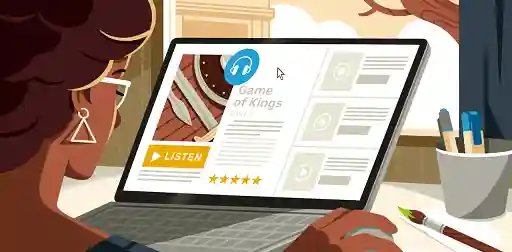
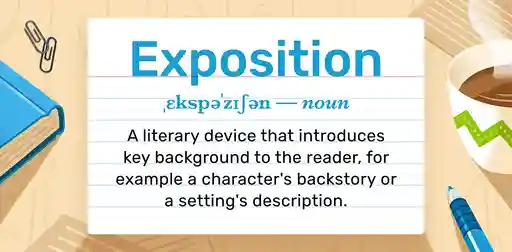
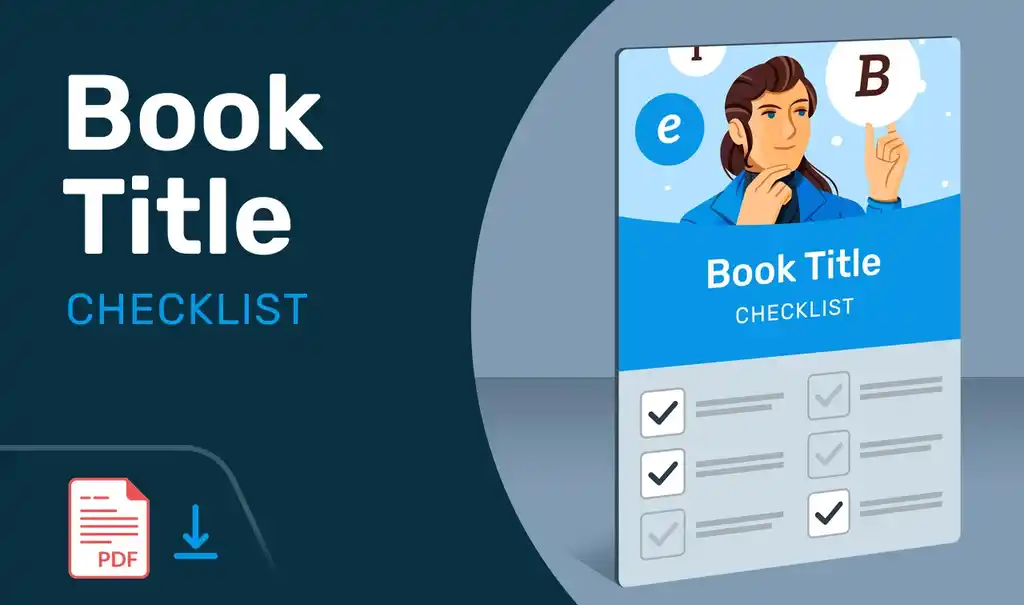

3 responses
Tom Chmielewski says:
27/06/2018 – 18:51
I use basically the same tactic that I used writing headlines for newspapers and magazines I've worked for. I search out a phrase that hits at some core idea in my novel. In my first novel, "Lunar Dust, Martian Sands," I took from a prayer at a Martian memorial service for a crew who died when their tug exploded, and partly quoted the prayer on the back cover. "We travel beyoond Earth on Moon dust, and build our homes from the sands of Mars." The Moon dust is the Heiium-3 found in the dust to fuel the fusion drives for the interplanatery tugs. The Martian sand is the raw materialls on the planet colonists use to build their homes and other structures. Martian Sands is also the name I'm using for the book series.
Esbe van Heerden says:
19/12/2018 – 05:13
These are amazing tips on book titling, wow! This blog in general is sooo helpful. Something I’ve seen work for nonfiction authors, in particular, is a really simple formula: 1. The defining main title 2. The informative subtitle 📚The Defining Main Title📚 Make sure your main title is short (around 5 words or less) so that it is easy to remember, and specific. It needs to be easy to say when you talk about your book, and something you wouldn’t be embarrassed saying over and over again at a formal event. It could be something to do with your brand (Start With Why—part of Simon Sinek's brand), a movement in your industry (Deep Work—a focus-based movement in the entrepreneurial industry) or something else related to your book's theme that's catchy. 📚The informative subtitle📚 Make sure the subtitle gives context—it can be longer, more SEO-friendly, and descriptive. This is especially important when your main title is catchy or based on a brand, because that means the main title isn’t necessarily a good indicator for a fresh reader as to what the book is about. So the subtitle needs to give a new reader this context. When brainstorming subtitle ideas, here are three quick tips: 1. Don't be a stuck record player! Avoid writing a subtitle that informs the reader about something they can already glean from the main title—don’t repeat ideas from your main title. 2. Become a keyword master. Amazon is the biggest search engine after Google and YouTube and your subtitle should include a few key keywords. In saying that, don’t overdo it—it still needs to make sense and sound genuine to potential readers. 3. Be clear and concise. Don’t let people get bored before they even finish reading the title of your book! And once you’ve come up with a few potentials, always ask yourself: What does the title I’m considering sound like when I say it out loud to new acquaintances at a party? If you are embarrassed to say it or can’t remember it—you’re in trouble. If people get what your book will be about after hearing your title—you’re onto a winner.
ginger northcutt says:
20/02/2020 – 12:16
i have become a great fan of reedsy this year. just like this one on titling, all the articles, how-to breakdowns, the courses (& much more still to explore), they all have been super-informative & offered w/ clarity & then more resources are given. you will be seeing me hanging around reedsy's place more often, for sure!